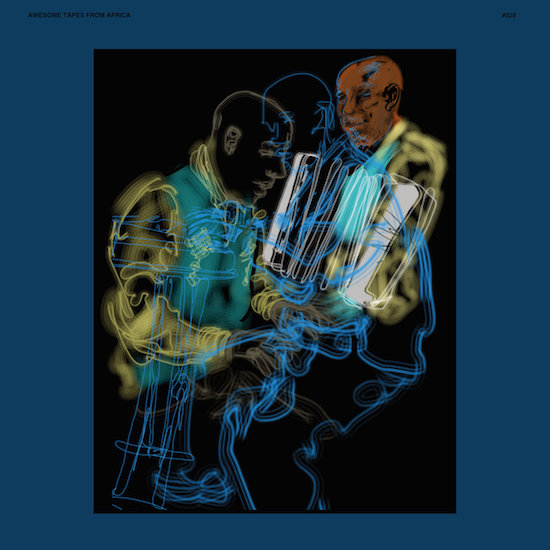Have you heard the one about the 75-year-old Washington DC taxi driver whose latent career as an Ethiopian jazz phenomenon was resurrected by the power of the blogosphere? This is, of course, the legend of Hailu Mergia: a one-time Ethiopian jazz great and keyboardist in the successful Walias Band (whose popular hit ‘Muziqawi Silt’ became one of the few examples of the genre to find an audience outside of the country, eventually being recorded by Brooklyn’s The Daktaris in 1998). In 1981 Mergia was driven from his home country by a combination of famine, social unrest and the emergence of the Derg, an authoritarian communist regime with an oppressive anti-music agenda. For the better part of the next three decades Mergia drove a taxi in Washington, writing new music in his cab between shifts and recording a few homemade cassettes featuring himself on accordion, Rhodes piano, Yamaha DX7 and drum machine. Given the prohibitive cost of international post and the fact the internet hadn’t yet been invented, very few of these reached his fans back at home.
So things continued until 2013, when a handful of these tapes were discovered by Brian Shimkovitz, founder of the Awesome Tapes From Africa blog and label. Shimkovitz then tracked down and befriended Mergia before helping him to re-release both his 70s work (with the Walias and Dahlak bands) and his curiously forlorn US compositions. Using AFTA’s online influence, the pair were able to share these lost albums around the world, winning Mergia whole new audiences and allowing him to tour in front of impassioned fans once again. All of this has culminated in the creation of Lala Belu, a vibrant, vital late-career release.
Recorded with the help of his well-oiled live rhythm section of Tony Buck on drums and Mike Majkowski on double bass, the album puts two revitalised Ethiopian classics ( ‘Gum Gum’ and ‘Anchihoye Lene’) between four original tracks. The first of these is ‘Tizita’, a three-movement journey that begins as a wistful accordion lament to Mergia’s long-lost homeland and ends as a frenzied free jazz tribute to the musical legacy of his adopted city.
This is recognisably the work of the lonely soul that self-released Hailu Mergia & His Classical Instrument in 1985, but it also sounds completely different. While that album (the first to be properly remastered by Awesome Tapes) never strayed far from the single programmed drum loop that anchored it, Lala Belu finds 2018 Hailu Mergia fired up by the prospect of playing with other talented musicians. The resulting sound is more wild, unpredictable cocktail of ideas that make his past solo releases sound like the demo tapes they were.
It’s even more unrecognisable when compared to Mergia’s 70s work, though the title track conveys some of the same Lonnie Liston Smith-like funk that pops through Tche Belew. While the Walias Band performed their music around either instrumental horn melodies or the powerful voice of Mahmoud Ahmed, his new three-piece format lets him explore more subtle melodic diversions on his assortment of keyboard-based instruments. The result can be hypnotic, like on the melodica-led ‘Addis Nat’, and occasionally disorientating, such as on bizarrely chosen lead single ‘Gum Gum’, which sounds not too dissimilar to taking a dose of PCP and spending all day trapped in a hotel lift that your brain won’t allow you to leave.
Lala Belu is at its best when you can sense its creator’s joy at returning to what he does best. Nowhere is this more palpable than on heart-in-mouth closing track ‘Yefikir Engurguro’, a solo coda that sounds like heavy tears of happiness falling on the keys of a piano. Even without knowing the story of its conception, this record has the capacity to stir the feelings without using words; knowing the years of heartache and hard work that preceded it simply makes you happy to live in such interesting times.


